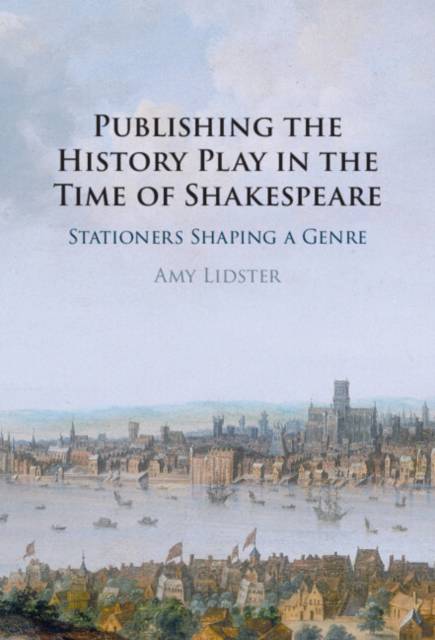
Bedankt voor het vertrouwen het afgelopen jaar! Om jou te bedanken bieden we GRATIS verzending (in België) aan op alles gedurende de hele maand januari.
- Afhalen na 1 uur in een winkel met voorraad
- In januari gratis thuislevering in België
- Ruim aanbod met 7 miljoen producten
Bedankt voor het vertrouwen het afgelopen jaar! Om jou te bedanken bieden we GRATIS verzending (in België) aan op alles gedurende de hele maand januari.
- Afhalen na 1 uur in een winkel met voorraad
- In januari gratis thuislevering in België
- Ruim aanbod met 7 miljoen producten
Zoeken
Publishing the History Play in the Time of Shakespeare
Stationers Shaping a Genre
Amy Lidster
Hardcover | Engels
€ 152,95
+ 305 punten
Omschrijving
During the early modern period, the publication process decisively shaped the history play and its reception. Bringing together the methodologies of genre criticism and book history, this study argues that stationers have - through acts of selection and presentation - constructed some remarkably influential expectations and ideas surrounding genre. Amy Lidster boldly challenges the uncritical use of Shakespeare's Folio as a touchstone for the history play, exposing the harmful ways in which this has solidified its parameters as a genre exclusively interested in the lives of English kings. Reframing the Folio as a single example of participation in genre-making, this book illuminates the exciting and diverse range of historical pasts that were available to readers and audiences in the early modern period. Lidster invites us to reappraise the connection between plays on stage and in print, and to reposition playbooks within the historical culture and geopolitics of the book trade.
Specificaties
Betrokkenen
- Auteur(s):
- Uitgeverij:
Inhoud
- Aantal bladzijden:
- 300
- Taal:
- Engels
Eigenschappen
- Productcode (EAN):
- 9781316517253
- Verschijningsdatum:
- 17/03/2022
- Uitvoering:
- Hardcover
- Formaat:
- Genaaid
- Afmetingen:
- 152 mm x 229 mm
- Gewicht:
- 566 g

Alleen bij Standaard Boekhandel
+ 305 punten op je klantenkaart van Standaard Boekhandel
Beoordelingen
We publiceren alleen reviews die voldoen aan de voorwaarden voor reviews. Bekijk onze voorwaarden voor reviews.









